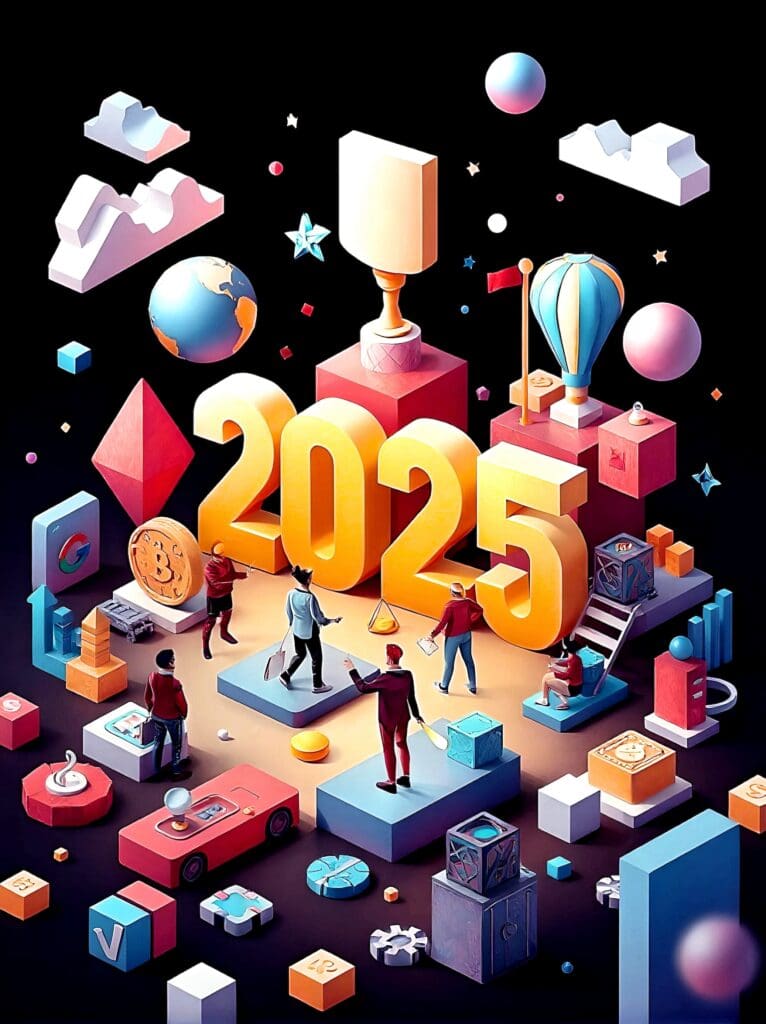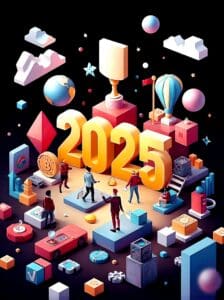Economy of 2025: The Brawl for Capitalism’s Future

The global economy in 2025 feels like an arena where old rules and new ideas clash under the spotlight of technological change, power shifts, and rising expectations. It's not just a battle over numbers and markets; it's a struggle to define what capitalism will look like in a future driven by innovation, inclusion, and environmental awareness. Who's winning this contest? Let's take a closer look.
Share to Social Media

Economy of 2025: The Brawl for Capitalism’s Future
1. Tech Titans Rewrite the Rulebook
In one corner of the arena, tech leaders are shaking up capitalism’s foundations. Armed with tools like AI, blockchain, and cryptocurrencies, they’re pushing for a world with fewer regulations and more freedom to innovate. This new wave of “techno-libertarians” sees decentralized systems as the key to a better, faster economy. But not everyone is cheering. Critics warn that without rules, this power shift could leave regular workers and smaller businesses behind, creating an uneven playing field.
The Easiest Way to Stay GDPR-Compliant
The fight here is clear: Can capitalism embrace technology’s speed and efficiency without losing its heart?

Design. Build. Launch. No Code Needed.
From portfolio websites to full webshops – Elementor lets you build custom WordPress sites visually, fast and beautifully. Join 14M+ users who choose freedom, flexibility, and full design control.
2. A World of Uneven Growth
The global economy is growing, but not all regions are thriving equally. Experts predict a 3.2% rise in global GDP by the end of the year, fueled by tech investments and strong consumer spending. Yet, while wealthier nations like the U.S. and parts of Europe ride this wave, emerging markets face hurdles like trade uncertainty and fluctuating prices for raw materials. The result? A widening gap between the economic winners and those struggling to keep up.
This is the brawl between growth and equity—can global capitalism lift all boats or just the largest ships?
3. Central Banks Walk a Tightrope
In the delicate dance of interest rates and monetary policy, central banks are key players in 2025’s economic story. The European Central Bank plans to lower rates to boost spending, while Japan takes cautious steps to raise its rates for the first time in years. Meanwhile, the U.S. Federal Reserve is fine-tuning its approach to keep markets steady.

Here, the battle is about balance: How do you stimulate growth without tipping the scales toward inflation or instability?
4. Trade Wars and Strategic Moves
The global trade game is shifting, and every major player wants control of the board. Countries like the U.S. and China are redrawing trade policies, leaving smaller nations caught in the crossfire. New alliances, tariffs, and supply chain disruptions are creating uncertainty—and opportunity.
It’s a geopolitical tug-of-war, with businesses and governments scrambling to stay on the winning side.
5. The Call for a Kinder Capitalism
Consumers in 2025 want more than just low prices and fast services. They want businesses to care—about the planet, about workers, and about communities. Companies are under pressure to balance profits with social responsibility and sustainability. This is transforming capitalism into something new, where ethical practices are just as important as the bottom line.
One example of this shift is Norway’s sovereign wealth fund, one of the largest in the world, considering divesting from companies tied to actions in Israeli settlements. This move underscores how investors are weighing human rights alongside financial returns, showing that business decisions are increasingly driven by ethical considerations.
But can this kinder capitalism keep up with the demands of a fast-moving global market? That’s the question.
6. The Future of Work: Flexibility vs. Security
Work is changing fast. AI and automation are creating new opportunities while eliminating old ones. Remote jobs and freelancing are giving workers more flexibility but raising concerns about stability. In 2025, businesses must find ways to balance innovation with fairness. The workplace brawl is about more than productivity—it’s about protecting workers in an uncertain future.
7. A Greener Economy Takes Center Stage
In 2025, sustainability isn’t optional—it’s essential. Companies are investing in renewable energy, eco-friendly materials, and products designed to be reused or recycled. But the push for green practices often clashes with short-term profit goals. The stakes in this battle are high: the future of the planet itself.
8. The Crypto and Blockchain Revolution
Blockchain technology and cryptocurrencies are disrupting traditional finance. These systems promise decentralization, giving people more control over their money. Supporters call it a game-changer, while critics worry about volatility and regulation gaps.
This is capitalism’s newest frontier, and the outcome could redefine how wealth is created and shared.
2025: A Year of Economic Evolution
The economy in 2025 isn’t just about profits or growth—it’s a story of transformation. From tech innovation to sustainability, from trade battles to workplace changes, the brawl for capitalism’s future is complex, messy, and full of possibilities. Who will shape the economy of tomorrow? That’s a fight still being decided.






